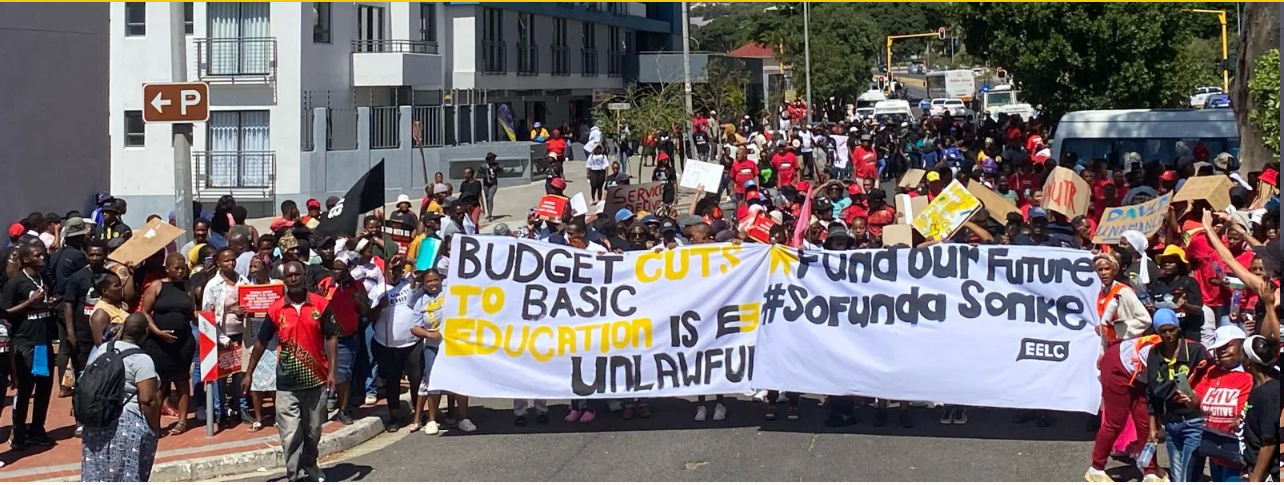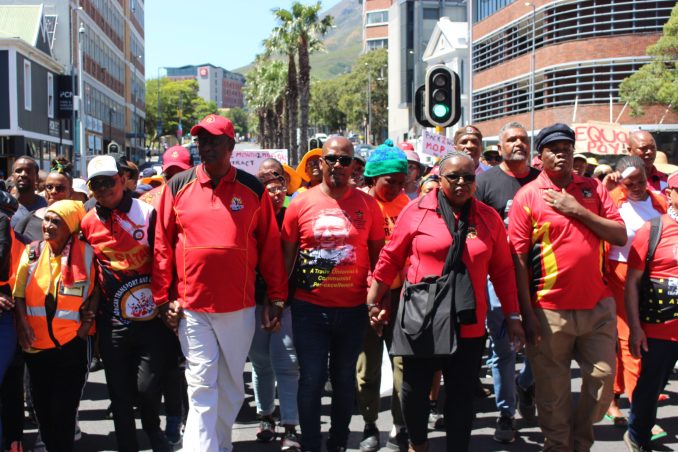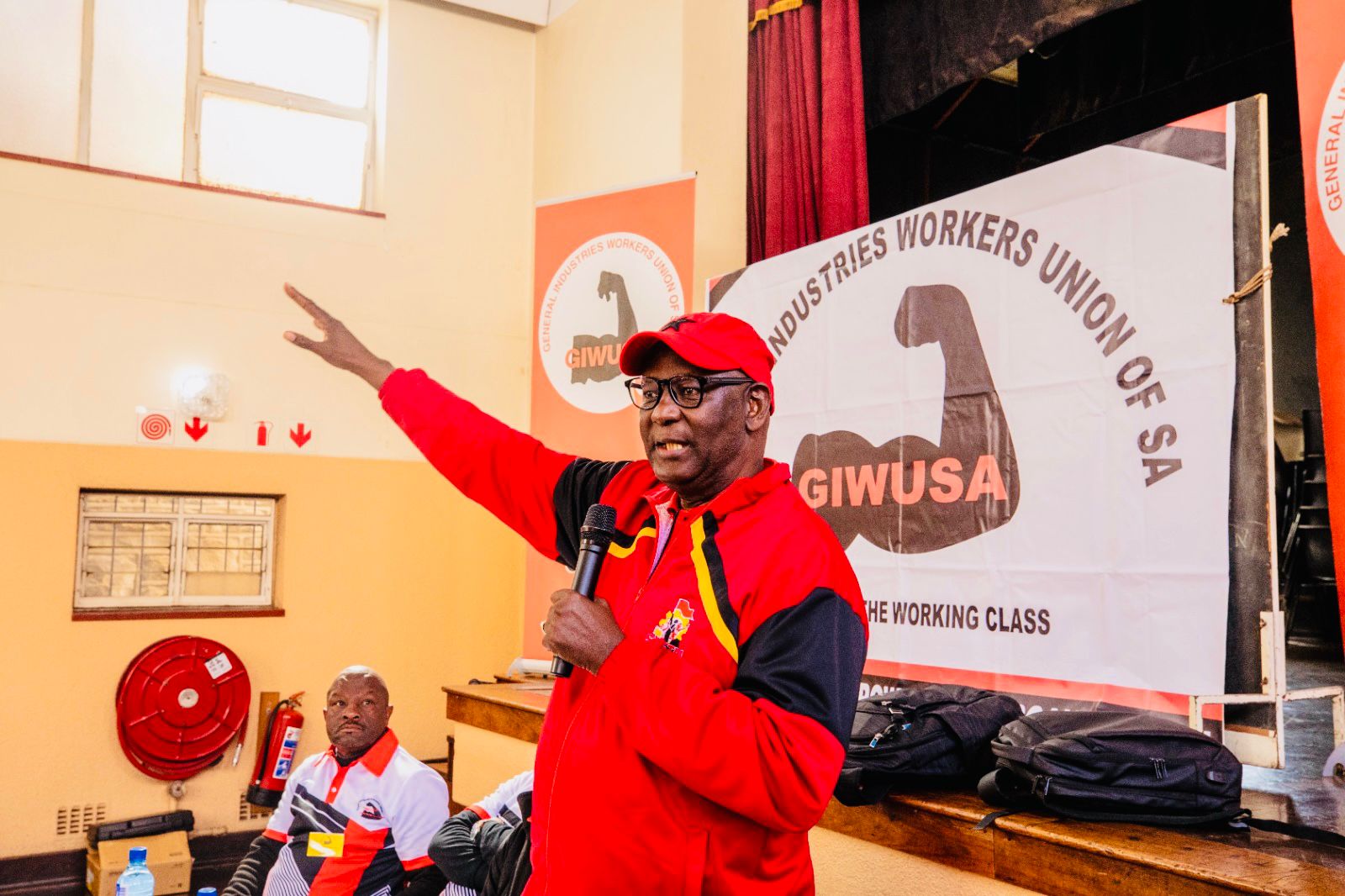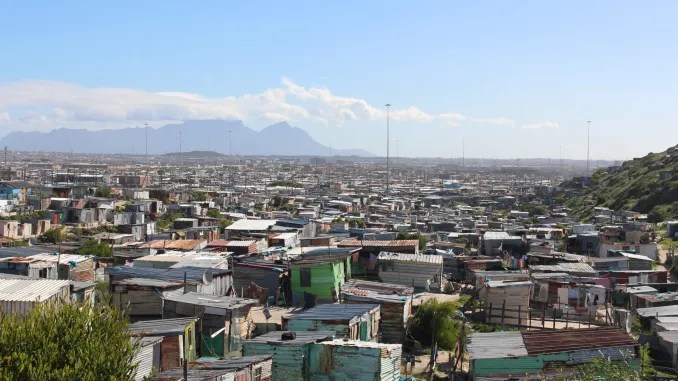Activists from the Vaal region protested outside the Department of Mineral Resources in Pretoria against Glubay’s proposed mine. Residents are concerned about water, soil and air pollution from the proposed mine. Photos: Ihsaan Haffejee
For years residents have been objecting to the Springfield and Vlakfontein mining project
By Ihsaan Haffejee – this post was first published on GroundUp
IN SUMMARY:
- Community Concerns:
- Residents near the proposed coal mine in the Vaal region fear it could destroy their lifestyle.
- The mine will be located near Meyerton and Vereeniging in Midvaal and Emfuleni municipal areas, spanning over 2,500 hectares.
- Project Details:
- Operator: Glubay Coal (an affiliate of Canyon Coal, owned by Menar).
- Mines: Springfield and Vlakfontein mines (open cast coal pits with a rail siding).
- Production: Estimated 600,000 tons of coal per month, over a 30-year lifespan.
- Historical Context:
- The area has seen various forms of coal mining since the late 1800s, including the Springfield colliery, which previously supplied coal to Klip Power Station (closed in 1953).
- Public Participation Issues:
- Jennie Labuschagne (Rothdene resident and member of the Coal-ition Committee): Described public meetings with mine representatives as “disastrous,” stating that questions were avoided, making residents “more apprehensive.”
- Yusuf Sather (Roshnee resident, also in Coal-ition): Communities have opposed the mine since 2019, with the project briefly halted due to COVID-19 and revived in 2022.
- Zitholele Consulting: Refused to hold a meeting in Roshnee due to “security issues and a fear of intimidation.”
- Environmental and Heritage Concerns:
- Sather on Mining Location: Opposes coal mine within residential areas due to potential for “massive air pollution, houses cracking… noise pollution, the depletion of water resources, and the risk of acid mine drainage.”
- Redan Rock Art Site: Close to proposed mining areas, considered “an important and exceptional heritage resource” by rock art specialist Jeremy Hollmann, who noted that six similar sites in the region were destroyed by past activities.
- Agricultural and Economic Impact:
- About 65% of the proposed mine’s land is currently used for farming maize, soybeans, and vegetables.
- Residents fear mining will harm agricultural viability, impacting jobs and local food production. A report by Rehab Green Monitoring Consultants states, “Mining of coal within high productive agricultural land is in principle unacceptable.”
- Community Protest and Memorandum:
- On 16 October, residents protested at the DMRE in Pretoria, where Mduduzi Tshabalala from the Vaal Environmental Justice Alliance (VEJA) submitted a memorandum to the department’s Chief Director, Modilati Malapane.
- Mining Company’s Response:
- Clifford Hallatt (COO of Canyon Coal/Glubay): Asserted that all community members were invited to meetings, some of which were held as open days, and that “extensive studies” were conducted with mitigation measures to protect resources.
- Jobs and Economic Development: 550 jobs expected from Sukuma mine, with employment sourced locally (25%) and from the Gauteng region and rest of South Africa (each 25%).
- Local Economic Development: Budget of R4.4 million for Sukuma (Springfield Colliery) and R1.7 million for Vlakfontein Colliery.
- Support for Local Communities: Hallatt mentioned the company’s support in areas like water provision and road repairs, noting that communities often look to mines to fill service delivery gaps.
- Coal and Energy Policy: Hallatt emphasized coal’s role as “indispensable” for producing materials like steel and cement, advocating for coal as a foundation in the energy mix alongside renewables for a “just energy transition.”












